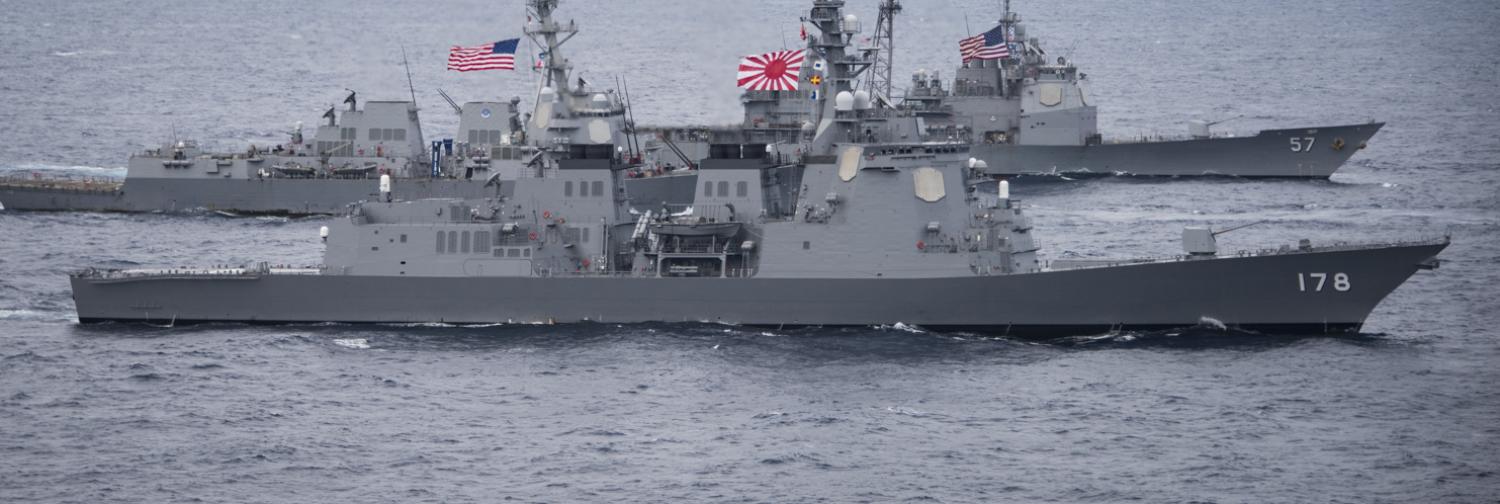Last week key treaty allies South Korea and Japan joined the US Navy's 7th Fleet for separate joint exercises in the waters west of Japan in a demonstration of force against Pyongyang's latest taunts of nuclear war.
However powerful this demonstration may have been, it was still missing one key US treaty ally: the latest target of North Korean nuclear threats, Australia.
North Korea warned Australia last week that it was risking a nuclear strike by 'blindly and zealously toeing the US line' and characterised the hosting of US marines in Darwin as an act designed to 'optimize [US] nuclear war readiness'. Some Australian security analysts, such as Andrew Shearer, have called for Canberra to consider acquiring missile defense systems. But the government's response so far has been limited to sharp rebukes from Foreign Minister Julie Bishop.
Australia must do more than that. It needs to help confront North Korea's rapid ballistic missile capability development by working with its partners in the region. In a show of solidarity against North Korea, the US should invite Australia and Japan to participate in a US-sponsored trilateral military exercise in Japanese waters, aimed at deterring future North Korean nuclear machinations.
The three countries have a history of trilateral security cooperation that dates back to 2002, rooted in upholding democratic values and the rules-based order in the Pacific. But the extent of this cooperation has been limited since Australia pulled out of the US-led Malabar multilateral training exercises in the Indian Ocean. Nonetheless, bilateral ties between the US and Japan and between the US and Australia have continued to deepen in the interim.
Responding to North Korea's threats is the perfect opportunity to start a new chapter in the US-Japan-Australia security relationship and would build off a history of successful security cooperation between Japan and Australia in various capacities since their 2007 Joint Declaration on Security Cooperation. Expanded trilateral cooperation should not be limited to addressing North Korea.
China may well object to such an exercise, and political leaders in Washington and Canberra may well say that Beijing's cooperation is essential for a solution to the North Korean problem. But if China wanted a solution to the current regime's threats in Pyongyang, it could (and would) have acted years ago – given the choice between a nuclear-armed North Korea and a unified Korea that is not aligned with Beijing's core interests, China would prefer the former.
At the recent 2+2 Foreign and Defence Minister's Meeting in Tokyo, Australia and Japan expressed their opposition to use of disputed features for military use in the South China Sea and reaffirmed the importance of the UN Conventions on the Law of the Sea, but more can be done to address this situation as well.
As a US treaty ally committed to democratic values, freedom of navigation, and rule of law in the Pacific, Australia passing through the South China Sea on its way back from Japanese waters (were the aforementioned drill with the US and Japan to be held) would demonstrate Canberra's firm resolve in the face of Chinese assertiveness in the region, and would demonstrate to the US and Japan that Australia is committed to the bedrock principles of their trilateral security relationship.
At the same time, it would show President Trump that Australia is willing to both work with the US in the Pacific and stand up to China on issues that matter to Beijing.

